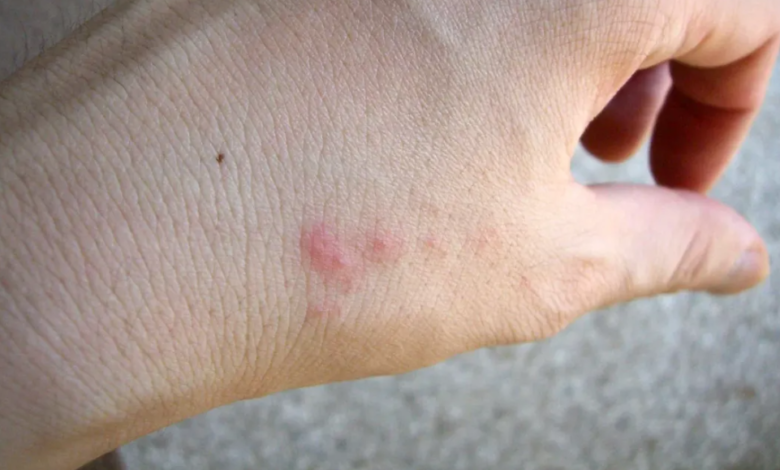Why Some People Don’t React to Bed Bug Bites

Bed bugs are tiny, elusive pests that feed on human blood, typically while people sleep. Despite their small size, bed bugs can cause significant anxiety and discomfort. Most people associate bed bug infestations with itchy red welts on the skin, yet not everyone experiences these telltale signs. In fact, some individuals don’t seem to react at all. This lack of reaction can make detecting an infestation more difficult and may even delay treatment. So why do some people remain unaffected by bed bug bites? This article explores the biological, environmental, and behavioral factors behind the varied responses to bed bug bites.
Understanding Bed Bug Bites
To understand why some people don’t react to bed bug bites ( væggelus bid ), it’s essential to know what happens during a bite. Bed bugs use their elongated mouthparts to pierce the skin and draw blood. During the feeding process, they inject saliva into the host’s skin. This saliva contains anticoagulants and anesthetics that prevent blood from clotting and reduce pain, allowing the bug to feed undetected for several minutes.
The body’s response to these foreign substances is what causes the typical symptoms: redness, swelling, itching, and irritation. These are signs of an allergic or inflammatory reaction to the proteins found in the bed bug’s saliva.
The Role of the Immune System
A key factor that influences how someone reacts to a bed bug bite is their immune system. Everyone’s immune system is different in terms of sensitivity and response. Some people have a heightened immune reaction and will quickly develop welts and itching, while others may have little or no response.
In individuals who do not react, their immune system may not recognize the bed bug saliva as a threat, or the reaction may be so mild that symptoms go unnoticed. On the other hand, people with stronger immune responses or allergies to bed bug saliva may experience more severe reactions.
Interestingly, the reaction to bites can change over time. Someone who initially had no symptoms might develop sensitivity after repeated exposure, and vice versa. This variation can further complicate the detection of bed bug infestations.
See also: The Modern-Day Essential: Why Milk Powder Is Gaining Ground in Everyday Life
Age and Skin Sensitivity
Age also plays a role in bite reactions. Older adults often have less sensitive skin and a slower immune response, which may make them less likely to notice or develop a visible reaction to bites. Young children and babies, however, might show more pronounced symptoms because their immune systems are more reactive and their skin is more delicate.
Skin thickness, sensitivity, and underlying conditions like eczema or psoriasis can also influence how someone reacts to a bite. People with sensitive skin may develop rashes or irritations even with minimal exposure, while others with tougher or less sensitive skin may not show any external signs.
Frequency of Exposure
Another factor that influences reaction is how often a person is bitten. With repeated exposure, the immune system may either become desensitized or sensitized. In cases of desensitization, the body gradually stops reacting, similar to how allergy shots work. In contrast, some people become more reactive over time, developing stronger and faster responses to bites.
This difference in response to repeated exposure can explain why two people sleeping in the same bed might experience entirely different symptoms, or why someone may react strongly to bites in one situation and not at all in another.
Genetics and Allergic Responses
Genetics may also influence how people respond to bed bug bites. Allergic responses are often hereditary, meaning people with family members who are highly allergic may be more likely to react to insect bites. Conversely, those with no history of allergic conditions might be less likely to experience symptoms.
The degree of sensitivity to insect bites, including those from mosquitoes, fleas, and bed bugs ( væggelus bid ), often runs in families. This genetic predisposition can explain why some individuals are “bite magnets” and others seem completely unaffected.
Psychological and Environmental Factors
Psychological factors such as stress and anxiety can amplify perceived symptoms of bug bites. Some individuals may experience what’s known as delusional parasitosis or phantom bites, where they feel itchy or uncomfortable even when there are no visible pests or bites. Others may not notice bites because they don’t associate them with discomfort or they sleep deeply and don’t wake up during the feeding process.
Environmental factors can also influence bite reactions. For instance, people living in hot and humid climates may already experience a lot of skin irritation, making it harder to differentiate bed bug bites from other conditions like heat rash or mosquito bites. Clothing and hygiene habits can also affect how and where bites appear on the body.
The Importance of Early Detection
Because some people don’t react to bed bug bites, infestations can often go unnoticed for weeks or even months. This is especially true in shared living environments such as apartments, hotels, and dormitories, where one person may have no symptoms while another is covered in welts.
The absence of visible bites does not mean there are no bed bugs present. For this reason, physical signs such as live bugs, shed skins, blood spots on sheets, or a musty odor should not be ignored. Even if no one in the household is showing signs of bites, these indicators may suggest an infestation that needs immediate attention.
Preventing and Managing Bed Bug Infestations
Whether or not you react to bites, it’s important to take preventive measures against bed bugs. Here are some tips:
- Inspect mattresses and furniture regularly for signs of bed bugs.
- Use mattress encasements to reduce hiding spots.
- Be cautious when traveling—check hotel beds and avoid placing luggage on the floor.
- Vacuum frequently and keep clutter to a minimum to reduce hiding places.
- Wash bedding regularly in hot water.
If you suspect a bed bug infestation, contact a pest control professional. Do-it-yourself methods are rarely effective for complete eradication and may cause the bugs to spread.
Conclusion
Not reacting to bed bug bites doesn’t mean you’re immune—it simply means your body doesn’t show visible signs. A variety of factors such as immune response, age, skin sensitivity, genetics, and exposure history determine how someone reacts to these bites. Understanding that not everyone shows symptoms is crucial in preventing and managing infestations. Whether or not you show a reaction, vigilance is key. Early detection and intervention can prevent a minor issue from becoming a widespread problem.




